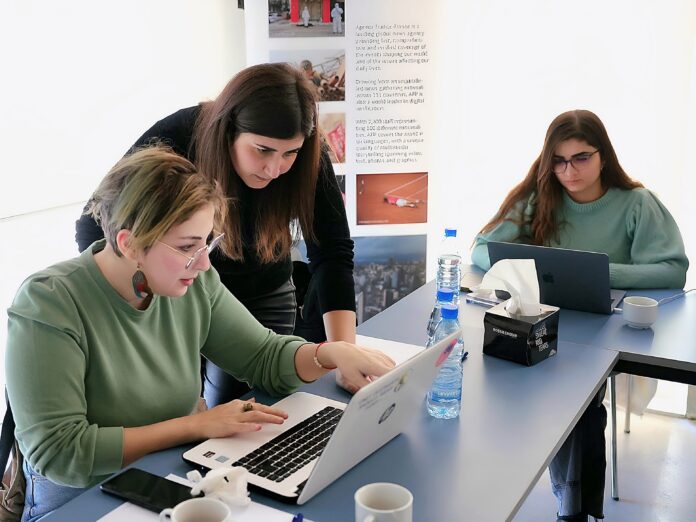Lebanon, a country of extraordinary cultural richness and diversity, also bears the weight of deep-rooted political and communal tensions. In such a sensitive landscape, the media—and increasingly, social media—plays a pivotal role. It holds the power to either inflame division or promote peace. Recognizing this dual potential, the United Nations Development Programme (UNDP), in collaboration with Agence France Presse (AFP) and with funding from the German Government through KfW Development Bank, launched a crucial initiative: empowering Lebanese journalists to report responsibly, combat hate speech, and counter fake news.
Training the Front Lines of Truth
The initiative delivered a four-part training program to 60 journalists from across Lebanon, with a strong focus on conflict-sensitive reporting, fact-checking, and countering hate speech. The strategy prioritized local media outlets, which are often the most trusted sources within their communities—and, therefore, the most impactful in shaping public perception.
The workshops emphasized the profound responsibility media carries, particularly in times of social strain. Journalists were introduced to practical tools for navigating sensitive coverage, mitigating the risks of inflammatory language, and identifying and addressing disinformation before it spreads.
Voices from the Field: Ethics in Action
“It’s critical to uphold journalistic standards, especially now—when the rush to break news often overshadows credibility and objectivity,” said Mariam Fneich of Waradana. Her reflection echoes a common concern in modern journalism: the tension between immediacy and accuracy.
The training tackled this challenge head-on by emphasizing rigorous fact-checking. Participants were introduced to verification tools and workflows that strengthen journalistic integrity, regardless of the pressure to publish quickly.
Elias Ghanem of Jbeil Daily News described the experience as transformative: “These newfound skills not only streamline our processes but also contribute to a media landscape that is more informed and responsible.”
Creating a Ripple Effect
Beyond the training itself, the initiative built a sustainable framework for knowledge sharing. Journalists were encouraged to cascade their learnings within their newsrooms, initiating wider institutional changes. Follow-up coaching sessions provided ongoing support, addressing real-world implementation challenges and reinforcing the ethical standards introduced in the training.
This ripple effect ensures that the principles of peace-promoting journalism reach beyond the initial 60 participants, permeating Lebanon’s broader media ecosystem.
Media as a Force for Peace
By equipping journalists with the tools to verify facts, challenge hate narratives, and engage ethically with conflict-sensitive topics, the UNDP-AFP initiative demonstrates that media can be more than a mirror of society—it can be an engine for positive change.
At a time when Lebanon faces persistent political paralysis, social strain, and economic hardship, the role of the media is more critical than ever. A well-informed, ethical, and peace-oriented press can challenge polarizing narratives, amplify constructive voices, and foster the dialogue needed for social cohesion.
In the digital age, the newsroom is not only where stories are told—it is where bridges are built. With the right training and support, Lebanon’s journalists are proving that media can lead the way toward a more peaceful, resilient, and united society.


 Creative Commons Attribution 4.0 International license
Creative Commons Attribution 4.0 International license